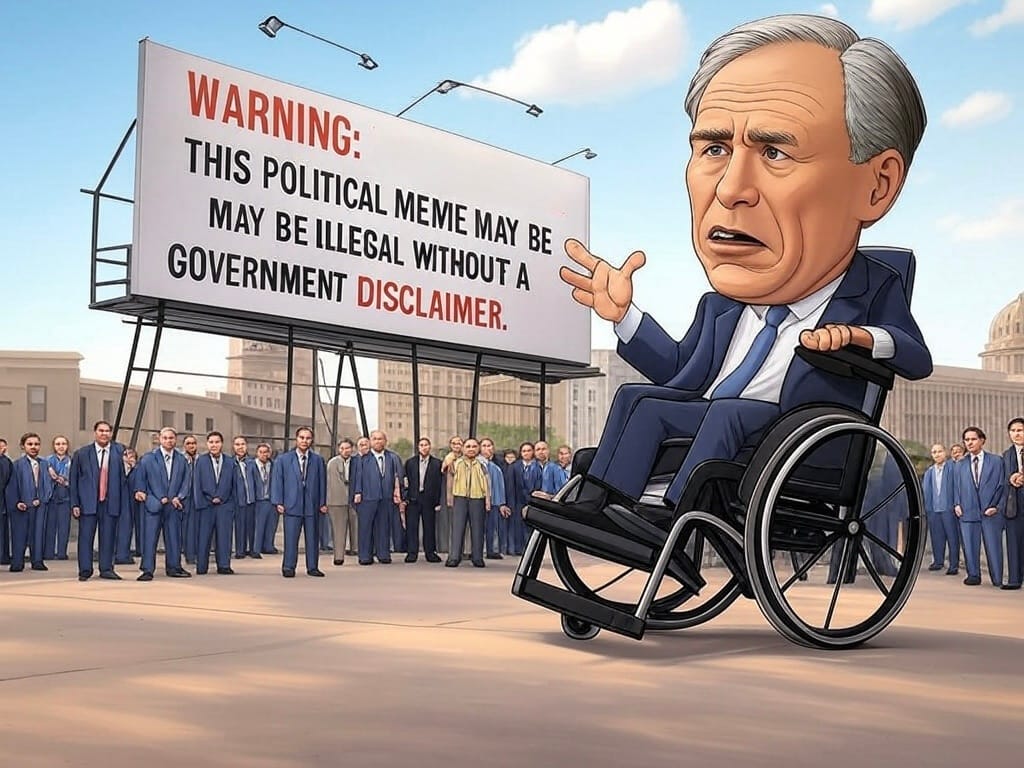The Texas legislature: bravely protecting politicians from Photoshop, one Class A misdemeanor at a time

The Texas Legislature has once again demonstrated its uncanny ability to focus on the most trivial issues imaginable, this time by passing a bill that would criminalize political memes unless they come with a government-approved disclaimer. In a state where real problems-from crumbling infrastructure to the corrosive influence of private money in politics-are screaming for attention, lawmakers have instead chosen to police Photoshop and satire. Apparently, the biggest threat to democracy in Texas isn’t unchecked campaign spending or voter suppression, but a clever meme with the wrong font size on its disclaimer.
The bill would require the disclosure by officeholders, candidates or political committees who used altered media in ads and spend more than $100 for political advertising. It would task the Texas Ethics Commision with determining what the disclosure would look like, including font, size and color. Violators would be charged with a Class A misdemeanor.
Let’s be honest: the idea that the Texas House’s top priority is to regulate memes is laughable. While Texans face urgent issues like healthcare access, school funding, and the ever-present specter of moneyed interests drowning out ordinary voices, legislators are busy debating whether a parody image of a politician needs a government-mandated warning label. The bill’s language is so broad that it could sweep up everything from AI-generated deepfakes to basic parody edits-essentially criminalizing the digital equivalent of a political cartoon if you forget to include the right government-approved notice.
Even the bill’s supposed safeguards are a joke. The $100 spending threshold is so vague that anyone who pays to boost a meme or uses a paid design tool could suddenly find themselves facing a Class A misdemeanor-a penalty that could mean up to a year in jail. Meanwhile, the Texas Ethics Commission, which is supposed to clarify enforcement, admits that social media posts could easily fall under the law’s jurisdiction, contradicting the bill’s own defenders. It’s hard to see this as anything but a colossal waste of legislative time and resources.
Instead of wasting time on meme regulation, the Texas Legislature could tackle something that actually matters-like getting private money out of political advertising, or passing reforms that would make elections fairer and more transparent. But that would require confronting the real sources of political dysfunction, rather than pretending that memes are the root of all evil. If only lawmakers cared as much about the corrosive influence of dark money as they do about the pixel-perfect accuracy of political jokes, maybe Texas would see some real progress.
